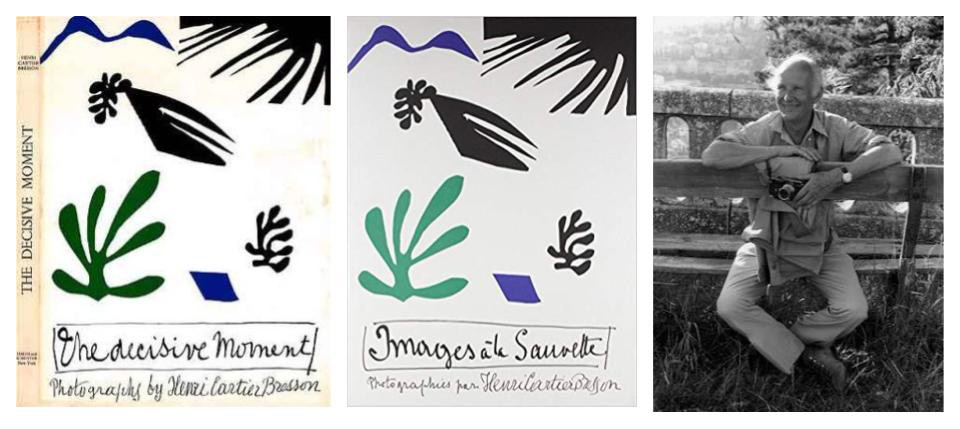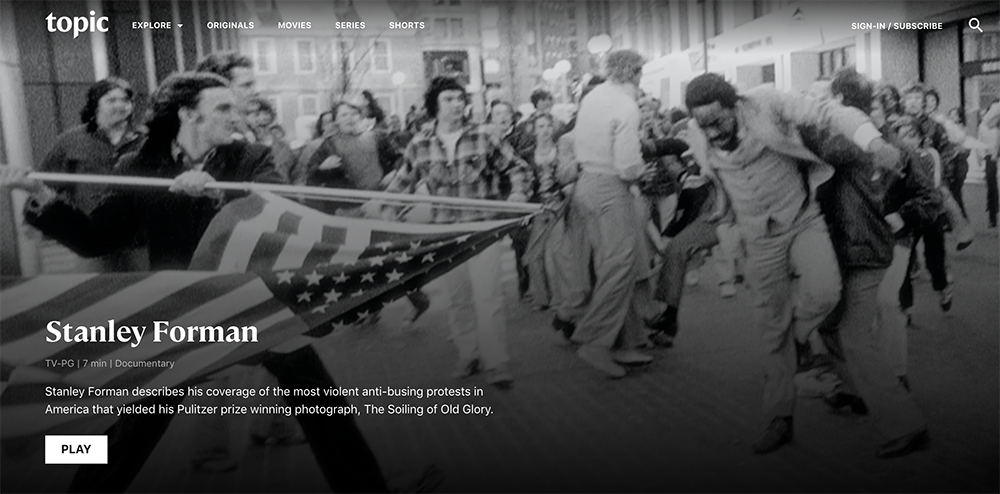This weekly post has everything you need for completing this week’s self-paced content and readings, plus an outline at the end for what’s covered during class meetings. This week we’re looking at the split-second decisions of photography, including the concept of “the decisive moment” and how this applies in sports photography and breaking news.
The Decisive Moment
Henri Cartier-Bresson, one of the most influential photojournalists of the 20th Century, saw photography as an artist. The world was his material. He is known for popularizing the term “the decisive moment” to describe taking a photograph at the precise moment when all the elements aligned in motion.
“We photographers deal in things that are continually vanishing, and when they have vanished, there is no contrivance on earth that can make them come back again. We cannot develop a print from memory…”
This brief video pairs an excerpt from a longer audio interview with photos that demonstrate “the decisive moment,” which gives you an idea of how Cartier-Bresson thought about photography.
Review & Reflection
- What does it mean that moments are continually vanishing?
- What does Cartier-Bresson mean in his analogy about how you need a lot of milk to make a little cheese?
Olympic Moments
Like the athletes, sports photographers were intensely disappointed when the 2020 Summer Olympics were postponed because of the coronavirus. It’s an event that raises the stakes for sports photography, because there’s pressure to capture the amazing moments that can happen at any time during the hundreds of competitions. Watch this short documentary is all about photography at the Olympics.
Review & Reflection
- In what ways are the photographers similar to the athletes?
- How are the photos quickly shared with a global audience, and how has this changed over time?
- How does a photographer from a global agency like Reuters approach the task differently from a photographer who represents a specific news organization based in one country?
- What skills or qualities would you look for in a photographer to know whether they’ll be successful at the Olympics?
- How does this type of photography relate to the decisive moment?
Reacting to Breaking News
Although photography sports is stressful, it also has patterns and rhythms based on the rules of competition. Breaking news, on the other hand, can be wholly unpredictable. The only photographer to ever win the Pulitzer Prize for Spot News Photography (now renamed Breaking News Photography) in two consecutive years was Stanley Forman of the Boston Herald American in 1976 and 1977. In this short documentary from earlier this year, Forman talks about the photo that won in 1977, and why it still matters today.
Review & Reflection
- What does Forman mean when he says he photographs based on instinct?
- What is the story of how this moment came about? What happened to the people afterward?
- Why were people angry at the photographer after the photo was published?
- What does Forman say about his experiences photographing now?
Monday
• Preview of week’s materials
Wednesday
• Photo discussion: Sports photos and notes
• Going over readings about anticipation, balance, tension
Friday
• Highlights from student work
• Review for quiz

